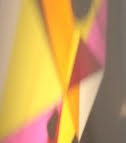left handed man...
i have to say that when i bought this 78 off ebay for 99 cents i had no idea what to expect... and when it arrived, it blew my mind. the only thing i can compare the oddly melancholic guitar chords at the beginning to, is the first few bars of billy bauer's intro to 'kary's trance' on lee konitz's inside hi-fi. both have a slight dissonance that makes them feel very melancholy, and slightly punk rock.
canhoto's playing here is amazing. those first few chords express a kind of sadness, starkness, and other worldly beauty. there are moments you can feel his fingers literally bouncing along the guitar neck. it turns out that canhoto (whose real name is américo jacomino) is hardly obscure, and is pretty much considered the father of brazilian choro music...
click here to listen to guitarra de mi tierra
more info here from the web: Américo Jacomino 'Canhoto' (12/02 1889 - 7/9 1928) is considered one of the originators of the Brazilian guitar tradition, also of major importance regarding the founding of the guitar choro. His composition 'Abismo de Rosas', a valsa-choro, has been the piece-de-resistance of many a pretending player of the violão (6 string guitar) showing off his or hers skills and knowledge on the guitar choro tradition. Américo Jacomino 'Canhoto' recorded the piece himself in the early days of record production in Brazil. Alvaro Neder writes about Américo Jacomino 'Canhoto' in AMG: "Canhoto learned to play the guitar with his older brother. As a left-hander, Canhoto never changed the order of the strings, playing the violão (guitar) in the inverted position, which granted his lifelong nickname (which means "left-handed man"). In 1907, he met the famous singer Paraguaçu and started to accompany him in performances during silent movies. In 1913, Canhoto was already enjoying good fame and recorded for the first time for the label Odeon. Three years later, one of his two earliest pieces was "Acordes do Violão," later known as "Abismo de Rosas," one of the classic pieces of the instrumental repertory of the Brazilian violão. With the soon-to-be lyrical singer Abigail Alessio and the actor Viterbo Azevedo, he formed a trio which toured through several cities but was dissolved with Azebedo's murder. Canhoto's production of music for the carnival also had expression; he successfully launched "Ai, Balbina" (with Arlindo Leal, 1920) and "Já Se Acabô" (also with Leal, 1921). Canhoto recorded his other instrumental classic for the guitar, "Marcha dos Marinheiros," in 1926."
Labels: américo jacomino, canhoto, listen

1 Comments:
I knew it! You snagged the Americo! It's a beaut, and obviously now in a good home.
Post a Comment
<< Home